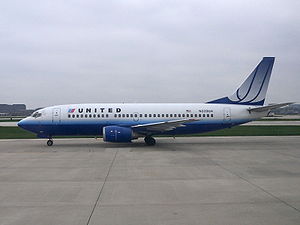|
Listen to this Article
|
Is disability discrimination a problem at our nation’s airports? If one were to ask Michelle Gilstrap, she would no doubt answer with a resounding yes. Her experience with airlines – specifically United Airlines – left much to be desired in the area of customer service.

Ms. Gilstrap has a broad range of medical problems, ranging from a collapsed disc in her back, to replaced knees. Due to these problems, she requires a wheelchair whenever she has to travel a long distance.
In both 2008 and 2009, Ms. Gilstrap took two separate trips and on both occasions requested wheelchair assistance through the airports. In both sets of circumstances, the airline failed to supply her with what she needed. To make matters worse, Ms. Gilstrap recalls enduring verbal harassment and criticism about her needs.
Legal Actions:
Due to the poor experience she had with United Airlines, Ms. Gilstrap sued the airline, claiming breaches of California tort law – specifically negligence, negligent misrepresentation, breach of duty and intentional infliction of emotional distress. She also maintains that the United Airlines violated Title III of the ADA. The ACAA is mentioned as a cited text, which attempts to establish her claims under California law.
Ms. Gilstrap is seeking compensation for both her physical and emotional injuries, including reimbursement for her medical bills, litigation costs, and punitive damages.
United Airlines filed a motion to dismiss under the Federal Rule of Civil Procedure 12(b)(6), which the District Court granted, stating that they believed Ms. Gilstrap’s claims to be both conflict- and field-preempted by the ACAA. The ACAA “…provides for administrative investigation of complaints…” rather than providing an action for violations of the statute or regulation. The Court also believed that using the statute as Ms. Gilstrap had done was going against how Congress intended it to be used. The judges held that the ADA claim does not apply to airport terminals, as the Act applies only to ‘places of public accommodation’ – which expressly excludes airport terminals.
Conclusion:
On appeal to the United States Court of Appeals for the Ninth Circuit, the appellate judges determined that the ADA claim was properly dismissed within the District Court. However, they held that the dismissal of Ms. Gilstrap’s state law claims was premature. While the lower court had fully considered whether the state law claims were preempted, the appellate court argued, it failed to look at whether the claims would have survived a motion for dismissal on other grounds.
In light of those considerations, the Court of Appeal has remanded this case for further proceedings.
Gilstrap v. United Airlines
No.11-55271
A summary of the appeal can be found on: United States Court Of Appeals For The Ninth Circuit (22 March 2013)


